Letter from the EBCL Director: Invigorating Biological Control Through Multidisciplinary Team Building
By Dr. Robert G Shatters, Jr.
June 3, 2024
Hello from Montpellier, France. This is my second Newsletter addition, and it has been a busy year. I am pleased to present more great contributions and advancements in the area of biological and biologically-based control from the USDA ARS Overseas Biological Control Laboratories (OBCL) researchers. Please see the newest articles to see some of the advancements we have been making. In last year’s Newsletter, I introduced myself and discussed our efforts to continue the important biological control activities that are on-going, but to also discussed our vision of integrating biological control with other emerging technologies to improve the impact of biological control research and expand its scope to include Biologically-based control strategies with a focus on developing biosecurity platforms for pest, pathogen and weed control that will support U.S. agriculture. It has been a busy year in this regard, and I would like to highlight the activities in this area.
First, the USDA ARS European Biological Control Laboratory (EBCL), Commonwealth Scientific and Industrial Research Organisation (CSIRO) European Laboratory and Agropolis International teamed up to sponsor an international workshop on biosecurity issues related to insect transmitted plant vascular bacterial diseases. We brought together participants from 8 different countries with diverse backgrounds that included in entomology, biological control, plant pathology, plant breeding, molecular biology, biotechnology, economics and policy from government, university, and private institutions. Ideas on how to work together in multidisciplinary teams to develop tools for a biosecurity toolbox to deal with insect transmitted plant pathogens were explored. An important discussion point was how to leverage different research platforms into integrated biosecurity management strategies, and this included how to integrate biological control with other control strategies. Various platforms of control were discussed including the emerging fields of gene drive systems for pest insect control. Interactions created during this meeting are continuing with a focus on developing proof-of-concept strategies that could be adapted to various invasive pest/pathogen issues.
At the end of August 2023, we were also fortunate to have the ARS administrator, Dr. Simon Liu along with the Deputy Administrator Dr. Steven Kappes, National Program Leader, Dr. Tim Widmer, and USDA ARS Office of International Research, Engagement and Cooperation (OIREC) Director, Ingrid Watson, visit the EBCL. Their visit coincided with a delegation of staffers from the U.S. Senate Agriculture Appropriations Subcommittee. We were able to provide a tour and a potluck lunch while we discussed our activities, priorities and successes with respect helping secure U.S. agriculture. Everyone at the EBCL pitched in to make it a successful event where the staffers parted with comments indicating that they were impressed with our work, and they understood how important this work was to U.S. agriculture.
We also had the chance to host the visit from U. S. Ambassador to France, Denise Campbell Bauer. It was a great opportunity to discuss the basics of biological control and the international relationship we share with France and how our international labs are positioned to aid U.S. agriculture back home. We also discussed how our international laboratories allow us to develop tools to fight invasive pests/pathogens that emerge elsewhere in the world before they arrive in the U.S.
During the early months of 2024, we hosted delegations from the U.S. including a USDA Climate Hub delegations and a delegation from University of Nebraska to discuss possible collaborations to support delivery of biologically-based solutions to U.S. crop production issues. A common theme, as our visitors leave our lab, is how impressed they are with the work they have seen.
Finally, I also want to let everyone know that we are forging ahead with our efforts to integrate biological control into a broader integrated biosecurity effort to speed up the process of delivering solutions to U.S. agriculture, and as part of this, we will be participating in the 2024 European Society of Vector Ecology (ESOVE). This is a branch of the international SOVE society that is headquartered in California. The SOVE society has classically been focused on vectors of disease in human and livestock, but as part of an effort to integrate “One Health” concepts (for explanation please see: One Health Basics | One Health | CDC) into the SOVE mission, they are exploring the incorporation of research on vectors of plant diseases into their structure. This will begin with the 2024 ESOVE conference to be held in Montpellier, France October 14-17, 2024. During this conference we will hold a roundtable discussion on biosecurity and early detection as it relates to both plant and animal vectored diseases. We hope to gain synergy in developing solutions to these major economic threats to agriculture worldwide by bring researchers on plant and animal systems together under this SOVE umbrella.
Well, I will leave it there for now and present research updates for all the OBCL laboratories. I hope you enjoy these updates and are as impressed as I am with the biological control work being performed at all our OBCL facilities!
Insect Transmitted Plant Vascular Disease Workshop, August 2023
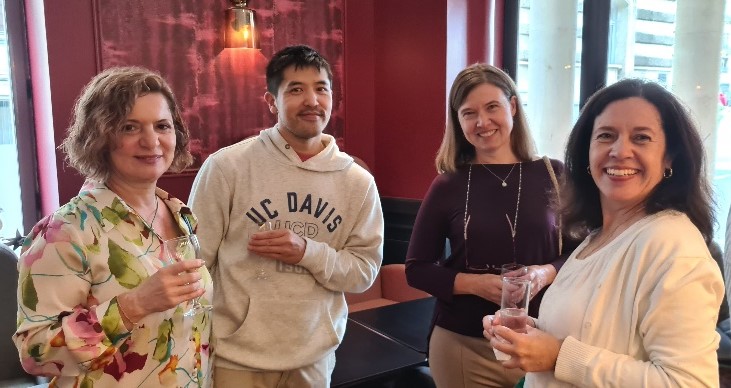


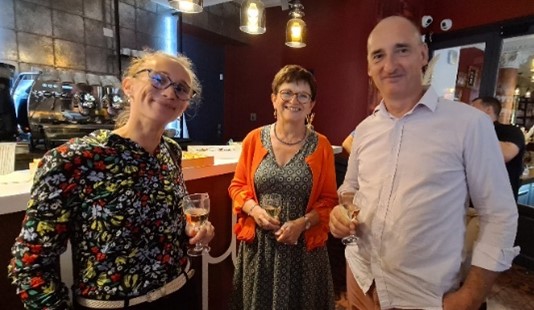
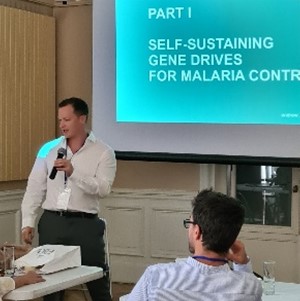

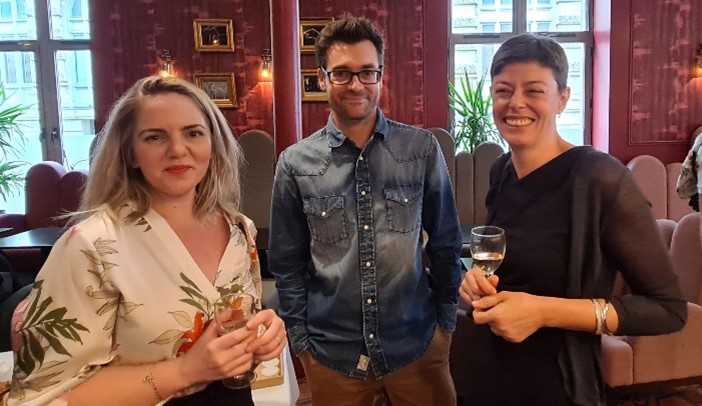
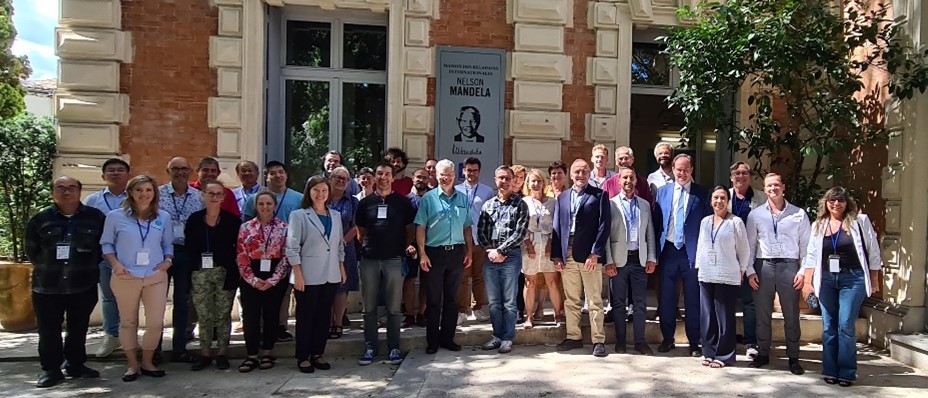
ARS Administrator and U.S. Senate Agriculture Appropriations Subcommittee Staffers Visit, August 30, 2023

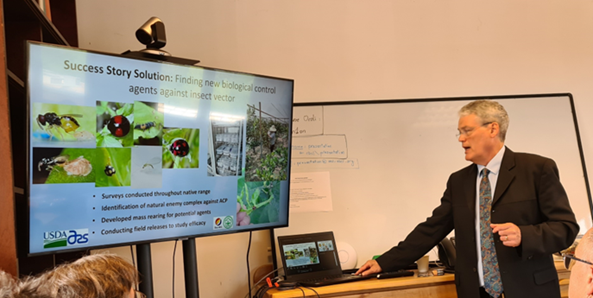



University of Nebraska Delegation Visit, May 2, 2024
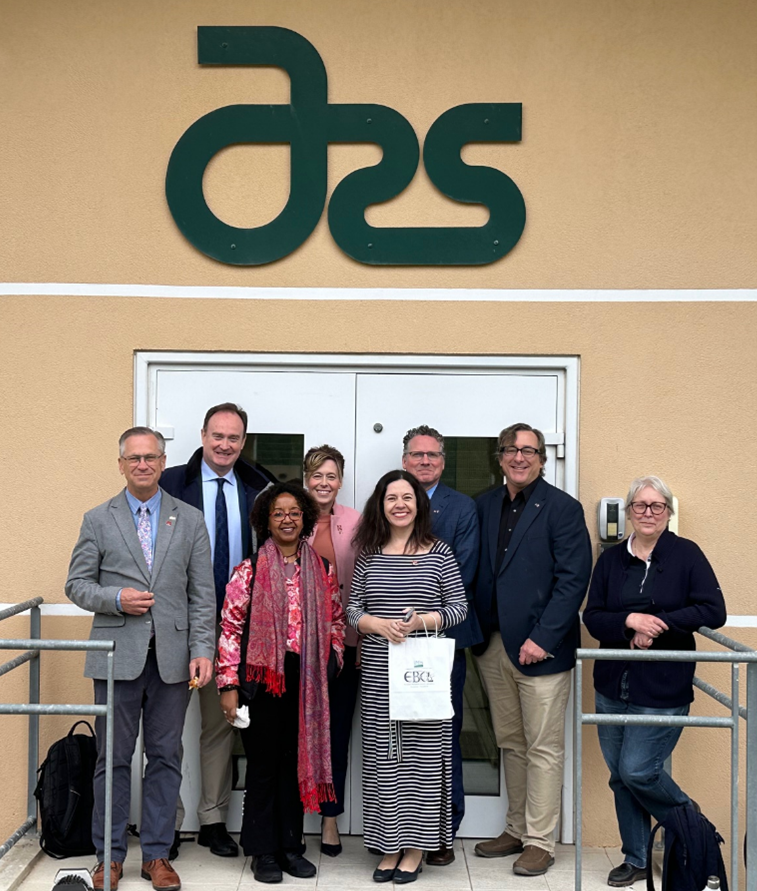
For inquiries regarding this article contact: ebcl@ars-ebcl.org.
The European Biological Control Laboratory (EBCL) was established in 1991 near Montpellier, France. EBCL was created by the merger of the former European Parasite Laboratory, established in Paris in 1919, and the Biological Control of Weeds Laboratory in Rome. EBCL has a satellite laboratory in Thessaloniki, Greece. As the only USDA ARS-operated laboratory outside the United States, EBCL develops biological control technologies which can be used to suppress invading weeds and insect pests of Eurasian origin. EBCL researchers do this by searching for natural enemies (insects, mites, and pathogens) in their native habitat, determining their identity, testing their host specificity and potential impact in laboratory and field experiments, and shipping promising organisms to the U.S. for further testing as biological control agents. EBCL collaborates with scientists in many countries in Europe, Asia, and Africa to explore in regions of origin of the target weeds and insects.
